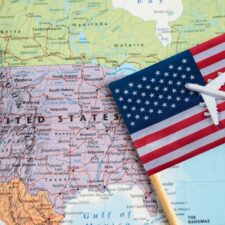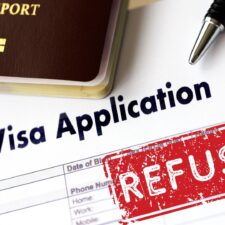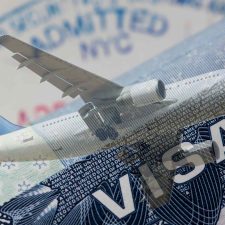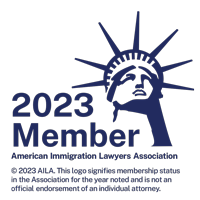What Does a U.S. Visa Officer Know About You Before Your Interview?
Are you headed to a U.S. visa interview and wondering WHAT THE VISA OFFICER knows about YOU BEFORE you even start the conversation? This is a question I hear all the time, and it’s crucial to understand because the officer’s knowledge can significantly influence your interview’s outcome.
Let’s break down exactly what the officer knows before and why it matters.
The DS-160: Your Digital Footprint
The most critical information the visa officer has about you comes from the DS-160 application you filled out and submitted. This form is packed with details about your background. Before your interview the visa officer skims it quickly to get a snapshot of who you are. Here’s what the DS-160 reveals:
- Personal Information: Your full name, date of birth, nationality, and other personal identifiers.
- Visa Type and Purpose of Travel: What visa you’re applying for and why you’re planning to visit the U.S.
- Duration of Stay: How long you intend to stay in the U.S.
- Family Ties: Whether you have relatives in the U.S., their visa status, or if they are U.S. citizens.
- Employment and Education History: Your job title, employer details, and educational background.
- Previous Visa Applications: If you’ve been denied a visa before, the officer will see this, along with the reasons for the denial.
This form is essential because it provides the officer with a structured view of your life and intentions, which shapes the questions they’ll ask you during the interview.
Your History with U.S. Immigration
If you’ve been refused a visa before, the officer will know why. Often, the reasons for a visa refusal aren’t fully explained to the applicant, but the officer has access to detailed notes about past refusals. This information can heavily influence the interview, as the officer may focus on clarifying any previous concerns.
Identity Verification ️
Before your interview, your identity is verified through the photo you uploaded with your DS-160 and your fingerprints. These biometric checks ensure that you are who you claim to be and screen you against criminal databases. The officer will know if there’s anything in your history that might automatically disqualify you from receiving a visa.
Immigrant Petitions: A Potential Red Flag
Another key detail the officer checks is whether anyone has filed an immigrant petition on your behalf. If you’re applying for a non-immigrant visa but have an active immigrant petition, the officer might question whether you intend to return to your home country after your visit. While an immigrant petition doesn’t automatically disqualify you from getting a non-immigrant visa, it’s a factor that will be considered during your interview.
The Officer’s Process: Quick and Decisive ⚡
Visa officers are highly trained to process large numbers of applications efficiently. They have just a few seconds to review your DS-160 and decide what to focus on in your interview. This means they’ll quickly identify key elements that need clarification or further questioning, and they may even decide on your eligibility before you say a word. ️
Key Takeaways ✨
So, what should you take away from all this? The most important thing is to be meticulous when completing your DS-160. Be honest, accurate, and precise because this information forms the foundation of the officer’s decision. Any discrepancies or unclear answers could raise red flags and potentially harm your chances of obtaining a visa.
If you need extra help preparing for your visa interview, be sure to download the FREE INTERVIEW GUIDE I’ve put together. It includes a checklist, tips, and pointers to help you prepare thoroughly. And don’t forget to subscribe to my Youtube Channel HERE to check out my other videos on interview preparation to maximize your chances of success. Remember, preparation is key to success! Good luck with your visa interview!













